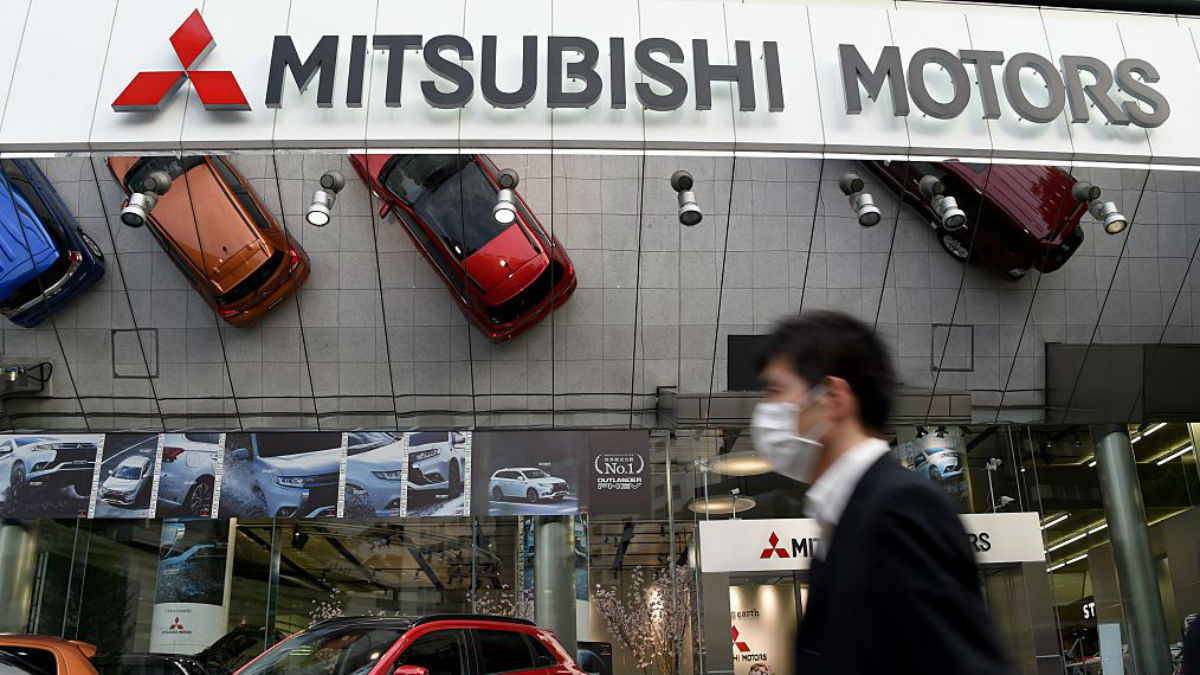Mitsubishi admits rigging fuel economy on 625,000 cars
Japanese carmaker supplied Nissan with vehicles too as shares slump 15 per cent

A free daily email with the biggest news stories of the day – and the best features from TheWeek.com
You are now subscribed
Your newsletter sign-up was successful
Mitsubishi has admitted to falsifying fuel economy data after discrepancies were found during tests on cars it produced for fellow Japanese carmaker Nissan.
Around 625,000 vehicles are said to have been affected, 468,000 of them produced for Nissan. The models are very small cars with small engine outputs, designed for and extremely popular in congested Asian cities.
While all the cars were sold on the Asian market, the company said it would conduct an investigation into products sold elsewhere as part of its response.
The Week
Escape your echo chamber. Get the facts behind the news, plus analysis from multiple perspectives.

Sign up for The Week's Free Newsletters
From our morning news briefing to a weekly Good News Newsletter, get the best of The Week delivered directly to your inbox.
From our morning news briefing to a weekly Good News Newsletter, get the best of The Week delivered directly to your inbox.
Mitsubishi admitted it had "conducted testing improperly to present better fuel consumption rates than the actual rates; and that the testing method was also different from the one required by Japanese law".
The company claims the cheating was carried out by a handful of rogue engineers and that senior officials were unaware.
"The wrongdoing was intentional. It is clear the falsification was done to make the mileage look better. But why they would resort to fraud to do this is still unclear," said president Tetsuro Aikawa, who joined senior executives in bowing solemnly at a news conference to announce the information.
In a much more low-tech affair than Volkswagen's use of a defeat device, Mitsubishi manipulated tyre pressure values during tests in order to "flatter" fuel economy.
A free daily email with the biggest news stories of the day – and the best features from TheWeek.com
The carmaker has taken the affected models off sale, as has Nissan, who will open talks with its manufacturing partner over compensation.
Mitsubishi is one of Japan's largest carmakers and sold more than one million vehicles last year. The announcement sent shares down 15 per cent in the country on Wednesday morning – the biggest one-day drop in 12 years.
According to the BBC, the company struggled for years to regain the trust of consumers in Japan after a defect scandal in the early 2000s that covered up problems such as components falling off vehicles, faulty clutches and failing brakes.
The Guardian says the company joins Hyundai, Kia, and Ford in the list of carmakers that have mishandled fuel consumption figures. Hyundai and Kia agreed to pay $350m (£244m) to the US in 2014 for overstating the efficiency of some of its models.
-
 How to Get to Heaven from Belfast: a ‘highly entertaining ride’
How to Get to Heaven from Belfast: a ‘highly entertaining ride’The Week Recommends Mystery-comedy from the creator of Derry Girls should be ‘your new binge-watch’
-
 The 8 best TV shows of the 1960s
The 8 best TV shows of the 1960sThe standout shows of this decade take viewers from outer space to the Wild West
-
 Microdramas are booming
Microdramas are boomingUnder the radar Scroll to watch a whole movie
-
 A thrilling foodie city in northern Japan
A thrilling foodie city in northern JapanThe Week Recommends The food scene here is ‘unspoilt’ and ‘fun’
-
 Samurai: a ‘blockbuster’ display of Japan’s legendary warriors
Samurai: a ‘blockbuster’ display of Japan’s legendary warriorsThe Week Recommends British Museum show offers a ‘scintillating journey’ through ‘a world of gore, power and artistic beauty’
-
 In Okinawa, experience the more tranquil side of Japan
In Okinawa, experience the more tranquil side of JapanThe Week Recommends Find serenity on land and in the sea
-
 A dreamy skiing adventure in Niseko
A dreamy skiing adventure in NisekoThe Week Recommends Light, deep, dry snow and soothing hot springs are drawing skiers to Japan’s northernmost island
-
 8 hotels that show off the many facets of Japan
8 hotels that show off the many facets of JapanThe Week Recommends Choose your own modern or traditional adventure
-
 Japan meets Italy at The Bulgari Hotel in Tokyo
Japan meets Italy at The Bulgari Hotel in TokyoThe Week Recommends Experience the peak of hospitality in an exclusive high-rise hotel in the heart of Tokyo
-
 5 fun cycling tours that let you vacation on two wheels
5 fun cycling tours that let you vacation on two wheelsThe Week Recommends Gain a new perspective while pedaling
-
 Go beyond the islands you already know in these 8 countries. Surprises await.
Go beyond the islands you already know in these 8 countries. Surprises await.The Week Recommends These destinations fly under the radar